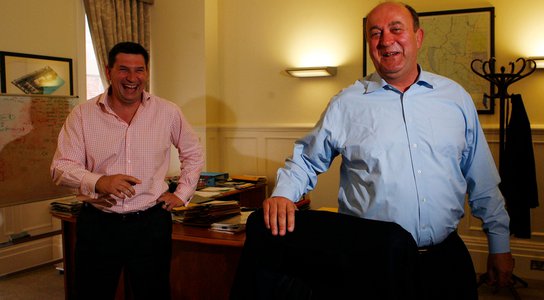This is a story about how anonymously-owned companies can be used to scam pension funds, savings funds, or any other investments that use stock exchanges.
The fact that company ownership information is kept secret in many places makes it extremely difficult for ordinary people or the authorities to detect this sort of scam. Hidden company ownership is not just a tool used to scam investors, but also a tool used by others to evade tax, launder money and even finance terrorism, as the recent Panama Papers revelations have laid bare.
The solution is simple, and the UK government holds the key. The names of the people who own and control companies – the so-called beneficial owners – need to be made public for all to see. Several countries, including the UK, have committed to do this. Now the UK needs to ensure that its Crown Dependencies and Overseas Territories, some of the most widely-abused secrecy jurisdictions in the world, do the same.
Here’s how the scam works. You float a company on a stock exchange, which you use to generate revenue from unsuspecting investors. At the same time, you set up another group of companies in secretive locations like the British Virgin Islands, Delaware and other tax havens. Without telling investors you also own this second group of companies, you use them to sell a series of assets – land, property, planes, for example – to your listed company at vastly inflated prices. You then pocket the difference between what they’re actually worth and what you sold them for.
Investors lose out, and you win big, all thanks to secret company ownership. If you own both parties to a deal it is known as a ‘related party transaction’ and stock market and accountancy rules insist that such deals are disclosed in order to ensure fair play. But it is easy to avoid these rules as there are plenty of places in the world, such as most of the UK’s Overseas Territories, where details of who owns and controls companies are kept secret.
Global Witness has gathered evidence of exactly this sort of scam. It was pulled off a number of times by Phil Edmonds, ex-spin bowler for the England cricket team, and his business partner Andrew Groves. They floated a number of companies on London’s junior stock market, the Alternative Investment Market (AIM). Most of the companies they set up made huge losses, but nevertheless Edmonds and Groves still profited at the expense of their companies’ investors.
“Mr Edmonds and Mr Groves deny any allegations of wrongdoing,” their lawyers said in a joint response to questions, telling Global Witness that they are “committed to ensuring that all their business is conducted in a responsible and ethical manner”.
Download full briefing on the left of this page.
Join the movement to end company secrecy
You might also like
-
Press release David Cameron: Majority of British public want you to act on the tax havens
Our joint ComRes poll with Christian Aid shows overwhelming majority want action
-
The Deceivers: Edmonds and Groves
The former England cricketer, his business partner and their stock market empire built with bribery and scams
-
UK Anti-Corruption Summit
After the Panama papers, the UK must tackle corruption in its own backyard at the Anti-Corruption Summit in London